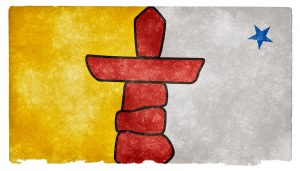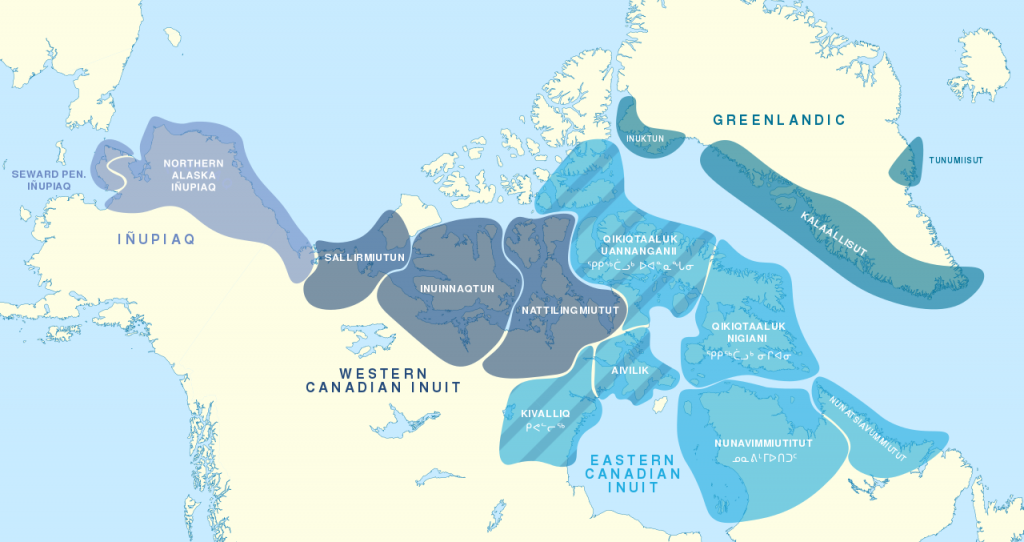Module 2: Expanding Your Intercultural Knowledge
Learning About Cultural Values

Raymond, N. (2013). Nunavut Grunge Flag. Flickr. https://www.flickr.com/photos/80497449@N04/7384683500 licensed under CC BY 3.0.
How much do you know about the Inuit people of Canada? Where do they live? What is their history? What is important for them in life? What are their struggles and challenges? Where have you learned about them? NOTE: Inuit means people and refers to the whole group, the community; Inuk refers to a single person; Inuktitut is the language of the Inuit.
Activity: Cultural Values
Visit the Indigenous Peoples Atlas of Canada and spend about 5-7 minutes (or more if you wish) browsing through the site to learn more about the Inuit of Canada.

Noahedits. (2020). Inuit languages and dialects. Wikimedia. https://commons.wikimedia.org/wiki/File:Inuit_languages_and_dialects.svg licensed under CC BY-SA 4.0
Next, visit “The Inuit Way: A Guide to Inuit Culture” [a pdf which opens in a new window] produced by Pauktuutit Inuit Women of Canada (2006) to introduce and help readers understand the cultural foundations of the modern Inuit. Take this opportunity to learn about the Inuit people. Spend about 5 minutes browsing through the pages. As you do this, think about the following:
- What activities, behaviours, or perspectives do you have in common?
- What aspects of their lives are different from your own experience?
- What is something you did not know about the Inuit or perhaps found interesting?

GRID-Arendal. (2013). Inuit woman carrying her child, Clyde River, Nunavut Canada. Flickr. https://www.flickr.com/photos/gridarendal/31247360974 licensed under CC BY-NC-SA 2.0
Read the section on “Traditional Inuit values” on pages 31-40 of “The Inuit Way: A Guide to Inuit Culture” and answer the True/False questions that follow.
Think About This
- What was something you learned about the Inuit that was surprising or interesting?
- Which of the Inuit values resonate with your own? With which would you feel more comfortable?
- Which values may require an adaptation when you connect with Inuit people?
- What challenges could emerge from your interactions with Inuit persons?
Takeaway points
- Cultural values explain much of what happens in interactions where we feel things are “out of place” or where we feel “lost” because we do not understand what drives behaviours or ways of thinking.
- Value systems across cultural groups will incorporate elements with which you may identify, as well as those you will need to learn about.
Try This Strategy
It is likely that there are cultural groups or subgroups within your own country that you know little about. These could be in your immediate vicinity, neighbourhood, community, city, or province. They could speak, for example, English, French, Russian, Turkish, Cantonese, or Swahili. Take time to read about these groups from different perspectives, using different sources that include (particularly) an insider and also an outsider perspective. Use that information to gain knowledge and remember to be wary of sources that rely on profiles that may unfairly describe people.

